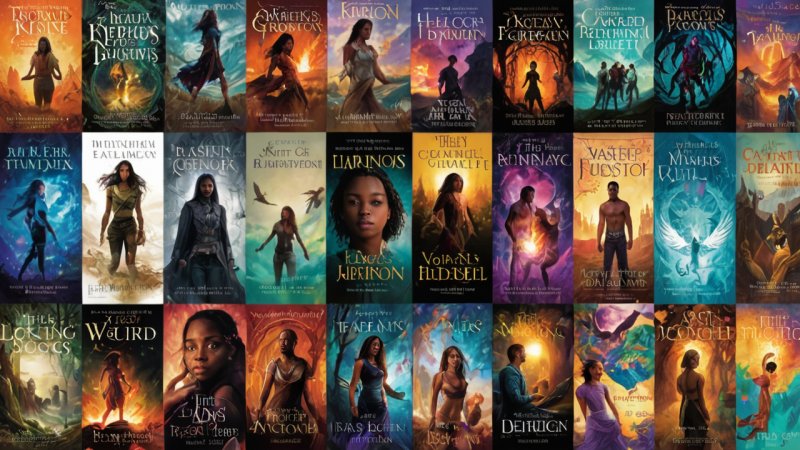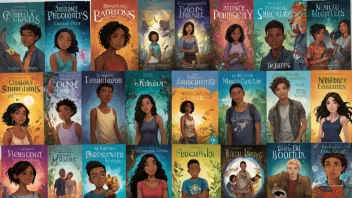In a world where choices define our paths, the theme of redemption resonates deeply within the realm of young adult literature. Authors across genres have embraced this powerful theme, weaving stories that not only captivate readers but also provide them with a sense of hope and understanding. Young adults, often grappling with their own identities and decisions, find solace in characters who face adversity, make mistakes, and ultimately seek forgiveness and transformation. As we delve into the landscape of young adult books that explore redemption, we uncover the myriad ways these narratives reflect the complexities of growing up, the significance of second chances, and the beauty of personal growth.
Understanding Redemption in Young Adult Literature
Redemption is a multifaceted theme that can be understood through various lenses—moral, emotional, and social. In young adult literature, it often manifests as characters who confront their past actions, navigate the consequences of their choices, and strive for a better tomorrow. These stories resonate with readers who are themselves in transitional phases of life, making the theme particularly poignant. The journey of redemption not only allows characters to seek forgiveness but also empowers them to reclaim their identities, showcasing resilience and the human capacity for change.
Notable Young Adult Novels Featuring Redemption
Several young adult novels exemplify the theme of redemption, each offering unique perspectives and narratives that resonate with readers. Here are a few noteworthy examples:
- The Perks of Being a Wallflower by Stephen Chbosky: This coming-of-age novel follows Charlie, a sensitive teenager who grapples with trauma and the complexities of friendship. Through his journey, Charlie seeks to understand himself and find redemption amidst his struggles, highlighting the importance of connection and healing.
- Looking for Alaska by John Green: In this poignant tale, Miles Halter embarks on a journey to find meaning and connection at a boarding school. The theme of redemption is woven throughout the narrative as characters confront their pasts and seek to make amends, ultimately discovering the significance of love and loss.
- The Kite Runner by Khaled Hosseini: Although primarily classified as adult fiction, this novel has garnered a significant young adult audience. It tells the story of Amir, who seeks redemption for betraying his childhood friend Hassan. The profound themes of guilt, forgiveness, and atonement resonate with young readers grappling with their own moral dilemmas.
- All the Bright Places by Jennifer Niven: This contemporary novel explores mental health, loss, and the quest for redemption through the lives of Finch and Violet. Both characters seek to understand their pasts and find hope in each other, offering a heartfelt portrayal of healing and personal growth.
- Shatter Me by Tahereh Mafi: This dystopian series follows Juliette, a girl with a deadly touch, who seeks to redeem herself in a world that has ostracized her. Her journey is one of self-acceptance and finding strength in vulnerability, illustrating the power of redemption through one's own narrative.
The Impact of Redemption Stories on Young Readers
Reading stories focused on redemption has a profound impact on young readers. These narratives offer not only entertainment but also valuable life lessons and insights. Here are some ways in which redemption-themed novels can influence young adults:
- Encouragement to Reflect: Characters who confront their pasts encourage readers to reflect on their own choices, fostering a sense of self-awareness and growth.
- Empathy Development: Experiencing the struggles of characters seeking redemption cultivates empathy, allowing readers to understand diverse perspectives and the complexities of human behavior.
- Inspiration for Change: Stories of personal transformation can inspire young readers to make positive changes in their own lives, reinforcing the idea that it is never too late to seek forgiveness and strive for a better future.
- Validation of Emotions: Redemption narratives often explore feelings of guilt, shame, and regret, validating the emotional experiences of young adults and showing them that they are not alone in their struggles.
Literary Trends Surrounding Redemption
As young adult literature continues to evolve, the theme of redemption remains a prevalent trend. New releases frequently incorporate elements of redemption, reflecting contemporary societal issues and the challenges faced by today's youth. Authors are increasingly exploring complex characters with morally ambiguous pasts, highlighting the gray areas of human behavior and the possibility of change. Additionally, there is a growing focus on mental health, identity, and social justice within redemption narratives, allowing readers to engage with relevant themes in a meaningful way.
Conclusion
The exploration of redemption in young adult literature serves as a powerful reminder of the resilience of the human spirit. Through the journeys of flawed characters seeking forgiveness and transformation, readers are encouraged to reflect on their own lives, choices, and the potential for growth. As young adults navigate the tumultuous waters of adolescence, these stories offer hope, understanding, and the reassurance that redemption is always within reach. By embracing the theme of redemption, authors contribute to a literary landscape that not only entertains but also empowers young readers to become the architects of their own destinies.






